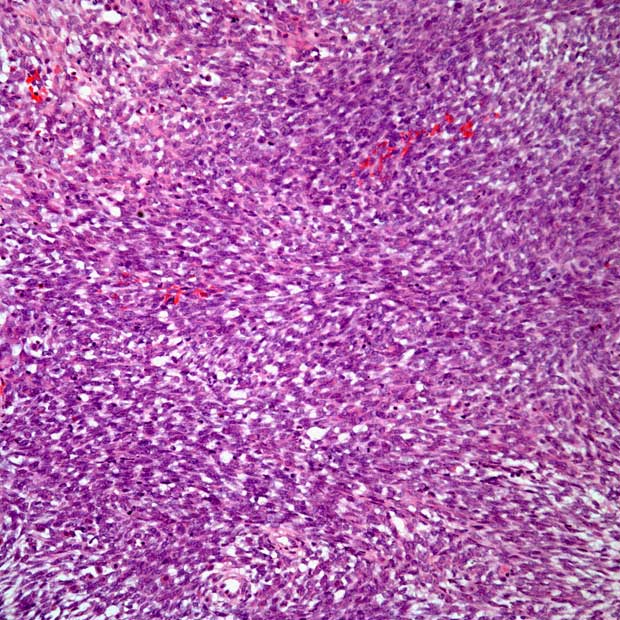Anyone have a cervical cancer recurrence 9 years later?
Hello all! I used to be on the older CSC network discussion group when I was diagnosed with Stage 1B Cervical adenocarcinoma in 2014, had a radical hysterectomy and that was all that was needed. Then I got breast cancer (2021), early stage, with bilateral mastectomy and that was all that was needed. THEN I started having right side pain this past summer (2023) so my GYN Oncologist ordered Abdominal CT that incidentally showed lung nodules, so they recommended PET Scan of the lungs. So, after two Pet Scans, a lung biopsy and a bronchoscopy, I was diagnosed with early stage squamous cell carcinoma in my right lung. BUT!!! the shocker is: the lung nodule (2 cm) had HPV high risk (HPV 18 and 16) detected!! So the tumor board is trying to figure out if this is a late metastasis from my cervical cancer back in 2014. My new Pulmonary Doc wants to do surgery (Thoracotomy, which I know is super painful and I'm scared about that), but had me meet with a Ear Nose and Throat DR to rule out head, throat and neck HPV cancer (which was ruled out) and now I will be visiting my GYN Oncologist next week.
Has anyone had a similar situation? The docs all seem baffled that my lung cancer was also positive for HPV!!
Thanks for reading!
Comments
-
Judemo, visitor from the Uterine page. While I can't comment on having a similar situation I did want to let you know I am thinking of you. I seem to remember your name from back in 2014 and hate to see that you are having to deal with so much.
I hope someone comes along to share any information they have. Hugs dear one.
1 -
I am very fortunate to be doing well. I am so sorry to hear what you have been going through and hope you let us know what the plan is you follow. Hugs dear one.
1 -
Great to hear you're doing well! Thank you for replying to me. I wonder why no one else really wants to reply to my question. Maybe it's too complicated or weird? Even my docs said they have never seen HPV in the lungs. I did some research on line and read some studies - I found that people have had their lung cancer HPV+
Oh well. Again, thanks so much for your time!!
0 -
Well it does sound complicated, not weird - in the "weird" sense of things, and as your docs have said they have never seen it I hope they reach out to others in the field for information.
It can be quiet on this page, so maybe someone over at SHARE: https://www.sharecancersupport.org/cervical-cancer/ or a quick google search for some of the other sites.
0 -
Hi Judemo, like NoTime I'm also a visitor from the Uterine/Endometrial page. I happened to see that NoTime had responded to your post so, being curious, I decided stop by also. I was diagnosed with endometrial adenocarcinoma, not cervical, so my comment is not based on personal experience.
As you mentioned, even though your doctors said they have never seen HPV in the lungs, some research indicates that there are HPV-related lung cancers. Here's one study from 2017 that I came across in case you haven't already seen it: https://www.ncbi.nlm.nih.gov/pmc/articles/PMC5707111/ This study states in part, "In summary, our meta-analysis indicates that HPV infection, especially HPV 16 and 18, increases lung cancer risk, particularly in squamous cell carcinoma and small cell carcinoma."
You might also want to ask your gyn-onc whether a cervical adenocarcinoma which you mentioned yours was would be likely to recur as a squamous cell carcinoma in the lung. The two different cell types jumped out at me and made me question whether your lung cancer might more likely be a new primary rather than a recurrence, but I will leave that one for the experts to sort out.
Sorry you have to go through treatment for another cancer, but I want to wish you all the best. Please let us know what you find out and keep us posted on how things are going.
1 -
MoeKay,
Thanks so much for taking the time to reply and add a great link for me to read and learn! It gives me some content to talk about with my doc next week and will ask those questions you bring up. I really appreciate your help. I always just say I had cervical adenocarcinoma but I think it was endometrial adenocarcinoma endometriod type (spelling). It’s crazy how HPV is a gift that just keeps on giving after decades and decades!!! Glad they finally found a vaccine for it - too bad it wasn’t around way back when.
again, thanks so much for your help!
0 -
Judemo, something to look into.
Atezolizumab Combo Significantly Improves Survival in Cervical Cancer
Combining atezolizumab with bevacizumab and chemotherapy may be a new frontline therapy option for patients with metastatic, persistent or recurrent cervical cancer, says Ana Oaknin, MD, PhD.
Atezolizumab in combination with bevacizumab added to platinum-based chemotherapy should be considered a new first-line therapy option for patients with metastatic, persistent, or recurrent cervical cancer,” according to Ana Oaknin, MD, PhD.
Adding atezolizumab (Tecentriq) to bevacizumab (Avastin) and platinum-based chemotherapy elicited clinically meaningful and statistically significant improvements in progression-free survival (PFS) and overall survival (OS) compared with bevacizumab plus chemotherapy in metastatic, persistent or recurrent cervical cancer, according to findings from the phase 3 BEATcc trial (NCT03556839) presented at the 2023 Annual Global Meeting of the International Gynecologic Cancer Society (IGCS).
With a median follow-up of 32.9 months (95% CI, 31.2-34.6), the median PFS was 13.7 months (95% CI, 12.3-16.6) with atezolizumab plus bevacizumab and chemotherapy vs 10.4 months (95% CI, 9.7-11.7) with bevacizumab plus chemotherapy (HR, 0.62; 95% CI, 0.49-0.78; P <.0001). In each respective arm, the PFS rate was 58% vs 42% at 12 months, 36% vs 19% at 24 months, and 26% vs 12% at 36 months.
In the interim analysis for OS, the median OS for patients receiving the atezolizumab-based regimen was 32.1 months (95% CI, 25.3-36.8) compared with 22.8 months (95% CI, 20.3-28.0) for those who received bevacizumab plus chemotherapy (HR, 0.68; 95% CI, 0.52-0.88; P = .0046). The 12-month, 24-month, and 36-month OS rates in each arm, respectively, were 84% vs 80%, 61% vs 49%, and 42% vs 26%.
The objective response rate was reported to be 84% (95% CI, 79%-89%) in the atezolizumab arm, which included a partial response (PR) rate of 52% and a complete response (CR) rate of 32%. The ORR for patients receiving bevacizumab plus chemotherapy alone was 72% (95% CI, 66%-78%), with 52% and 20% of patients achieving PRs and CRs, respectively.
Data indicated a median duration of response (DOR) of 13.6 months (95% CI, 10.6-21.3) with the atezolizumab regimen vs 8.6 months (95% CI, 8.0-10.6) with bevacizumab plus chemotherapy (HR, 0.60; 95% CI, 0.46-0.78). Ongoing responses in each respective arm were observed in 54% vs 35% of patients at 12 months, 40% vs 19% at 24 months, and 29% vs 16% at 36 months.
“Atezolizumab in combination with bevacizumab added to platinum-based chemotherapy should be considered a new first-line therapy option for patients with metastatic, persistent, or recurrent cervical cancer,” Ana Oaknin, MD, PhD, head of the Gynecologic Cancer Program at Vall d’Hebron Institute of Oncology, Hospital Universitari Vall d’Hebron, Vall d’Hebron Barcelona Hospital Campus at Barcelona, Spain, said in a presentation.
In the open-label BEATcc trial, 410 patients were randomly assigned 1:1 to receive 15 mg/kg of bevacizumab plus paclitaxel and cisplatin/carboplatin with or without 1200 mg of atezolizumab. All agents were administered intravenously every 3 weeks.
The trial’s dual primary end points were PFS per investigator assessment based on RECIST v1.1 criteria and OS. Key secondary end points included ORR and DOR.
Patients with metastatic, persistent, or recurrent cervical cancer not amenable to curative therapy and an ECOG performance status of 0 or 1 were able to enroll on the trial. Other eligibility criteria included having no prior systemic anti-cancer treatment and available tumor samples for PD-L1 expression. Patients with pelvic disease were eligible if they had no bladder or rectal mucosa involvement. Investigators stratified patients based on prior concurrent chemoradiation, histology, and chemotherapy.
Any-grade adverse effects (AEs) occurred in 99% of patients in the atezolizumab arm and 99% of those in the non-atezolizumab arm, and grade 3 or higher toxicities affected 79% and 75% of each respective group. AEs of special interest for bevacizumab affected 51% and 50% of patients in each respective arm, and toxicities of special interest for atezolizumab occurred in 21% and 0%. Additionally, 15% and 16% of patients in each arm experienced AEs that resulted in any treatment discontinuation.
Oaknin concluded that the safety profile of atezolizumab plus bevacizumab and chemotherapy was predictable and manageable. Additionally, the regimen did not raise any new safety signals.
1 -
NoTimeForCancer!
I read this study and it is so very helpful so that I can have a conversation about it with my Docs. Thank you very much for taking the time to research and read the study, then send it to me. I really appreciate it! You are so helpful to so many and have been for quite some time now.
I had my surgery this past Monday (Thoracotomy/Lobectomy) and just got home yesterday, after they pulled the chest tube. I will be followed up by a GYN/Oncologist to begin chemo at end of month, as they are calling it recurrence of cervical/uterine cancer from 2014. Will let you know how it goes as time passes.
Thanks again for all of your help ☺️
0
Discussion Boards
- All Discussion Boards
- 6 CSN Information
- 6 Welcome to CSN
- 122.1K Cancer specific
- 2.8K Anal Cancer
- 448 Bladder Cancer
- 309 Bone Cancers
- 1.6K Brain Cancer
- 28.5K Breast Cancer
- 398 Childhood Cancers
- 27.9K Colorectal Cancer
- 4.6K Esophageal Cancer
- 1.2K Gynecological Cancers (other than ovarian and uterine)
- 13K Head and Neck Cancer
- 6.4K Kidney Cancer
- 673 Leukemia
- 795 Liver Cancer
- 4.1K Lung Cancer
- 5.1K Lymphoma (Hodgkin and Non-Hodgkin)
- 239 Multiple Myeloma
- 7.2K Ovarian Cancer
- 65 Pancreatic Cancer
- 490 Peritoneal Cancer
- 5.5K Prostate Cancer
- 1.2K Rare and Other Cancers
- 543 Sarcoma
- 737 Skin Cancer
- 658 Stomach Cancer
- 192 Testicular Cancer
- 1.5K Thyroid Cancer
- 5.9K Uterine/Endometrial Cancer
- 6.3K Lifestyle Discussion Boards

